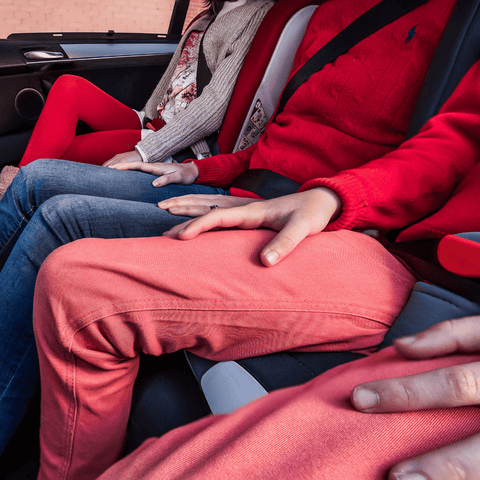The Dangers of Using Second-Hand Car Seats: What Every Parent Needs to Know
When it comes to your child's safety, choosing the right car seat is one of the most important decisions you can make. While it might be tempting to use a second-hand car seat passed down from family or friends, purchased online, or even found at a car boot sale, this decision can carry significant risks. Here’s why you should think twice before opting for a second-hand car seat.
1. Outdated Safety Standards
Second-hand car seats may not comply with current safety standards. To ensure your child’s safety, car seats must meet at least ECE R44/03, ECE R44/04, or the more recent ECE R129 (i-Size) standards. Many older car seats still in circulation may not meet these requirements, and some could be over 20 years old. Over the years, there have been substantial improvements in the performance, testing, structure, and comfort of children’s car seats. Investing in an i-Size seat, which adheres to the latest safety regulations, is always recommended.
2. Limited or Expired Warranties
New car seats come with a manufacturer’s warranty, typically valid for up to two years from the date of purchase. However, this warranty only applies to the original buyer. If you encounter any issues with a second-hand seat, you won’t be covered by a warranty, leaving you with a potentially faulty and unsafe seat. Moreover, parts for older seats may no longer be manufactured, making repairs impossible.
3. Potential for Missing or Damaged Parts
A second-hand car seat may have missing or damaged parts, including essential components like the instruction manual. Without these, there’s a higher risk of incorrect installation or dangerous use. Plastics and foam materials in car seats degrade over time, losing strength and becoming prone to cracking. Polystyrene, often used in car seats for impact protection, can also deteriorate with age. Any damage or weakness in the seat could seriously affect its performance in the event of a collision.
4. Risk of Recall
There’s always a possibility that a second-hand car seat was part of a product recall. Recalled seats are often replaced by manufacturers due to safety concerns, meaning that the one you have might be unsafe. Although recalls are rare, they underscore the importance of knowing the full history of your car seat—a certainty you don’t have with a second-hand purchase.
5. Previous Collision History
Perhaps the most critical risk associated with second-hand car seats is the potential for prior involvement in a collision. Car seats are designed to protect your child in a single crash. After that, they should be replaced, much like seat belts that have been in use during a collision. When you use a second-hand seat, you may unknowingly be putting your child at significant risk, as the seat’s protective capabilities could be compromised.
Conclusion: Invest in Your Child’s Safety
Using a second-hand car seat might seem like an easy way to save money, but it could cost you much more in terms of your child's safety. At In Car Safety Centre, we strongly recommend investing in a new car seat that meets the latest safety standards. Doing so ensures that your child is protected by the best technology available today.
If you need advice on selecting the right car seat for your child, our team of experts is here to help. Visit one of our centres or contact us online to find out more.





Comments (0)
There are no comments for this article. Be the first one to leave a message!